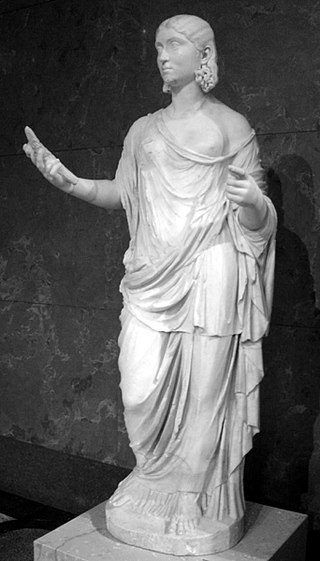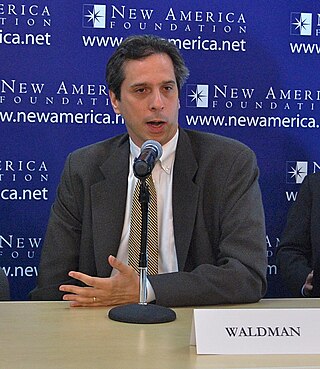The term Judeo-Christian is used to group Christianity and Judaism together, either in reference to Christianity's derivation from Judaism, Christianity's recognition of Jewish scripture to constitute the Old Testament of the Christian Bible, or values supposed to be shared by the two religions. The term Judæo Christian first appeared in the 19th century as a word for Jewish converts to Christianity. The term has received criticism, largely from Jewish thinkers, as relying on and perpetuating notions of supersessionism, as well as glossing over fundamental differences between Jewish and Christian thought, theology, culture and practice.

Thealogy views divine matters through feminine perspectives including but not limited to feminism. Valerie Saiving, Isaac Bonewits (1976) and Naomi Goldenberg (1979) introduced the concept as a neologism. Its use then widened to mean all feminine ideas of the sacred, which Charlotte Caron usefully explained in 1993: "reflection on the divine in feminine or feminist terms". By 1996, when Melissa Raphael published Thealogy and Embodiment, the term was well established.

The pontifex maximus was the chief high priest of the College of Pontiffs in ancient Rome. This was the most important position in the ancient Roman religion, open only to patricians until 254 BC, when a plebeian first held this position. Although in fact the most powerful office in the Roman priesthood, the pontifex maximus was officially ranked fifth in the ranking of the highest Roman priests, behind the Rex Sacrorum and the flamines maiores.

Numa Pompilius was the legendary second king of Rome, succeeding Romulus after a one-year interregnum. He was of Sabine origin, and many of Rome's most important religious and political institutions are attributed to him, such as the Roman calendar, Vestal Virgins, the cult of Mars, the cult of Jupiter, the cult of Romulus, and the office of pontifex maximus.

Televangelism and occasionally termed radio evangelism or teleministry, denotes the utilization of media platforms, notably radio and television, for the marketing of religious messages, particularly Christianity.
Religion in the United States is both widespread and diverse, with higher reported levels of belief than other wealthy Western nations. Polls indicate that an overwhelming majority of Americans believe in a higher power (2021), engage in spiritual practices (2022), and consider themselves religious or spiritual (2017).
The Fourth Great Awakening was a Christian awakening that some scholars – including economic historian, Robert Fogel – say took place in the United States in the late 1960s and early 1970s, while others look at the era following World War II. The terminology is controversial, with some historians believing the religious changes that took place in the US during these years were not equivalent to those of the first three Great Awakenings. Thus, the idea of a Fourth Great Awakening itself has not been generally accepted.

Egeria was a nymph attributed a legendary role in the early history of Rome as a divine consort and counselor of Numa Pompilius, the second king of Rome, to whom she imparted laws and rituals pertaining to ancient Roman religion. Her name is used as an eponym for a female advisor or counselor.

Thomas William Harpur was a Canadian biblical scholar, columnist, and broadcaster. An ordained Anglican priest, he was a proponent of the Christ myth theory, the idea that Jesus did not exist but is a fictional or mythological figure. He was the author of a number of books, including For Christ's Sake (1986), Life after Death (1996), The Pagan Christ (2004), and Born Again.

The Jewish Telegraphic Agency (JTA) is an international news agency and wire service that primarily covers Judaism- and Jewish-related topics and news. Described as the "Associated Press of the Jewish media", JTA serves Jewish and non-Jewish newspapers and press around the world as a syndication partner. Founded in 1917, it is world Jewry's oldest and most widely-read wire service.

Cathleen Falsani is an American journalist and author. She specializes in the intersection of religion/spirituality/faith and culture, and has been a staff writer for the Chicago Sun Times, the Chicago Tribune, Sojourners magazine, Religion News Service, and the Orange County Register in Southern California. Falsani is the author of several non-fiction books on religious, spiritual, and cultural issues.

Religion of Black Americans refers to the religious and spiritual practices of African Americans. Historians generally agree that the religious life of Black Americans "forms the foundation of their community life". Before 1775 there was scattered evidence of organized religion among Black people in the Thirteen Colonies. The Methodist and Baptist churches became much more active in the 1780s. Their growth was quite rapid for the next 150 years, until their membership included the majority of Black Americans.

Zev Chafets is an American-Israeli author and columnist.
In the United States, between 4% and 15% of citizens demonstrated nonreligious attitudes and naturalistic worldviews, namely atheists or agnostics. The number of self-identified atheists and agnostics was around 4% each, while many persons formally affiliated with a religion are likewise non-believing.

Steven Waldman is an American journalist. He is president and co-founder of Report for America—a national service program that deploys emerging journalists to local newsrooms. He is also the founder and president of Rebuild Local News, a nonpartisan nonprofit advocacy group dedicated to addressing the decline of local news and enhancing local democracy.
Patheos is a non-denominational, non-partisan online media company providing information and commentary from various, mostly religious, perspectives.

Nathan Schneider is a scholar focused on economic justice in the online economy. Since 2015, he has been a professor of media studies at the University of Colorado Boulder. Previously, he worked as a journalist.
New religious movements in the Pacific Northwest region of the United States have a history going back to the 19th century.
Judaeo-Christian ethics is a supposed value system common to Jews and Christians. It was first described in print in 1941 by English writer George Orwell. The idea that Judaeo-Christian ethics underpin American politics, law and morals has been part of the "American civil religion" since the 1940s. In recent years, the phrase has been associated with American conservatism, but the concept—though not always the exact phrase—has frequently featured in the rhetoric of leaders across the political spectrum, including that of Franklin D. Roosevelt and Lyndon B. Johnson.











